
Alchemy Arktos 120
- Price: Starting at $5,499.
- Available from Alchemy.
This review has been a long time in the making. My first Alchemy Arktos test ride was actually six years ago at the Sea Otter Classic, though a lot about the current model, which I’ve been testing off-and-on since November, has changed. What hasn’t changed is the brand’s use of the Sine Wave suspension design and commitment to high quality carbon frames and top-shelf components.
For those who aren’t familiar with the bike or need a refresher, read on to learn more about the frame construction and design, geo, and build kit. To skip ahead and hear how it rides, click here.
The Alchemy Arktos frame
Alchemy started out hand-building carbon bike frames in Colorado, though today much of the production has moved overseas. The company still designs and prototypes carbon frames in Colorado, and they’ve developed award winning carbon layups which gives them the confidence to offer a lifetime warranty against manufacturing defects (crashes and normal wear and tear are not covered), According to the brand’s marketing materials, lateral stiffness is prioritized in the layup design, as are light weight and overall reliability.

Sine Suspension System is Alchemy’s patented suspension platform, designed by David Earle. You can read about the details here, but the tldr; is the design seeks to minimize pedal bob. That, paired with a focus on lateral frame stiffness, promises to make for a bike that climbs really well, while remaining capable and comfortable on the descents.
The linkage on this Arktos 120 model is very compact and mates seamlessly with the carbon frame. Oversized pivots promise plenty of strength and durability. This Arktos model offers 120mm of rear suspension and is designed with a 130mm fork in mind. The rear end on the latest models feature Super Boost axle spacing and Alchemy says the bike can be configured with mixed wheels.

Naturally, the frame features internal cable routing through the down tube. The derailleur cable briefly exits the down tube, then jumps into the chain stay to keep things nice and neat. Cables and hoses exit above the bottom bracket, rather than below, keeping them farther out of harm’s way.
On the size large and XL bikes I tested, there’s more than enough room for a full-size water bottle inside the front triangle. Alchemy also provides mounts for a second bottle cage on the bottom of the down tube which is a nice thought, though in my experience it’s not all that practical.

There’s a flip chip to adjust the bike’s angles by 0.75°. The 77.75° seat tube angle is on the steep and progressive end for a trail bike, while the nearly 66° head tube angle is about average for a short-travel bike. The reach and wheelbase — 520mm and 1272mm, respectively, for the extra large model I tested — stand out as relatively long among trail bikes. The 333mm bottom bracket height is slightly lower than the current model trail bikes I’ve looked at, but not by a lot. The lowish bottom bracket, combined with the frame length, should make for a progressive and stable descender.
Alchemy Arktos 120 sizing
Looking at the overall geo and the rider height range recommendations from Alchemy I ordered a size XL back in November. After riding the bike for several weeks I started to experience some back and shoulder discomfort that just wouldn’t go away. Poring over the geo chart and comparing it to several recent bikes I’ve comfortably tested, I zeroed in on two numbers as potential culprits: the reach and the stack height. At roughly 520mm of reach, it’s the longest bike I’ve tested by about 10mm (the Pyga Hyrax, which I loved, is 510mm). The Arktos 120 stack height is slightly lower than the average trail bike we looked at last year, and according to my own measurement of the saddle-to-bar drop it’s a whopping inch and a half lower than my personal bike.
Reviewer profile height: 190cm (6’3″) weight: 75kg (165lb) testing zone: Southeast, USA
After chatting with Ryan at Alchemy and Nic from Simbol we decided to swap out the XL for a size large to reduce the reach. To be honest I was skeptical that would make a difference; my money was on the stack height being too low. Over the past few years many riders have been sizing up in order to get longer reaches, and don’t necessarily want or need the taller stack heights and longer seat tube lengths associated with bigger sizes. I also ordered a set of 50mm Diety riser bars as a backup in case the shorter reach (and even lower stack height) didn’t improve the fit for me.
Cutting to the chase, the 494mm reach on the size large Arktos provided a more comfortable fit, though still not 100% ideal. I also tried a higher hand position on the size large but found the bike handles better without the riser bar. My takeaway is that the combination of a long reach with a low stack height just stretched me out too much on the bike. I think either one by itself — an extended reach or a low stack height — works ok for me, but not both.


Build
Looking at the Arktos 120 builds available, one of the first thing that stands out is the suspension package. All of the builds, from the least to most expensive, feature a Fox 34 Factory fork with a GRIP2 damper and a Factory DPX2 shock, both in all their Kashima-coated glory. Yet (and I’ll likely get some admittedly deserved flack for saying this) the starting price of $5,499 isn’t as expensive as I would have guessed with all those gold-colored stanchions. Putting together build kits is an act of balance and compromise and the fact that all three builds feature Fox Factory parts shows that this is an area where Alchemy chooses not to compromise. It’s a bold move, and it sorta makes sense given how much suspension can affect a bike’s performance and ride feel. The downside is that keeps the price out of reach for many buyers.
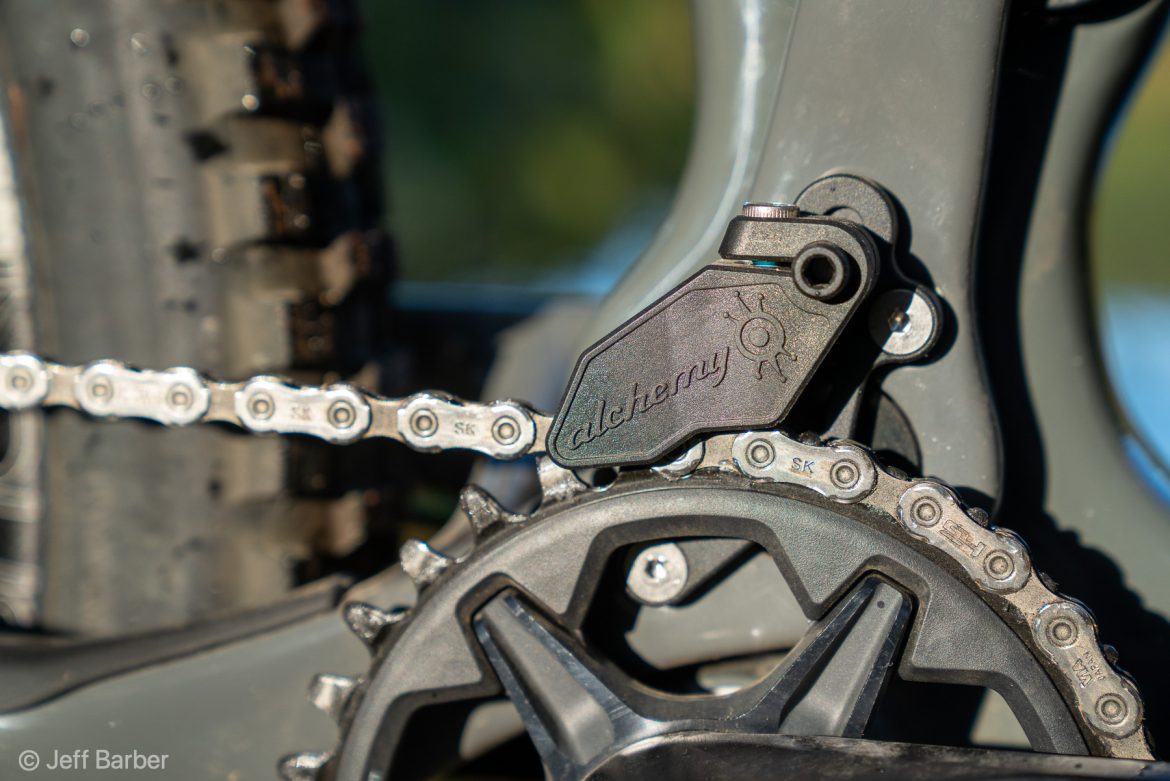
The XL bike I tested has the brand’s middle build that features a 12-speed Shimano XT drivetrain, priced at $5,999. The brakes are Shimano XT too with four pistons and 160mm and 180mm rotors front and rear, respectively. Alchemy specs this version of the Arktos with matching 29er wheels which are Industry Nine Enduro S wheels with their fast engaging Hydra hubs. And while the rims may not be carbon, they are 30.5mm wide internally for a good fit with wider tires down the road.



Speaking of the tires, the build I’m testing includes a 2.3-inch Maxxis Minion DHF up front and a 2.3-inch Minion DHR II in the rear. Both tires feature an EXO casing which makes sense given the bike’s light-trail intentions, however, harder-hitting riders may want to upgrade to something burlier.

Just like the suspension components, Alchemy also specs a Factory-level Fox Transfer dropper post on all of the builds. I’m not sold on the performance benefits of a Kashima-coated dropper post, but at least it matches the suspension in name, if not always tint.


At the front end of the cockpit there’s a set of 800mm Tag T1 alloy bars and a 35mm Tag T1 stem. The bar and stem have really helpful markings for getting everything aligned and dialed which is nice. For hands there are DMR Deathgrips, and for butts, a Selle Italia Base-X saddle. After testing the Arktos XT build, the grips and saddle are really the only parts I would change if this were my bike.
All told, the extra large build I tested weighs 31.24lb without pedals. Alchemy sells complete bikes direct to consumer through their website. Overall it’s a great looking bike, and I received many compliments on it during my testing.
On the trail
In an interview with Gerow, Fox Suspension expert Tyrone Dynes described the ‘flat tire feel’ of properly tuned suspension, and it’s a description that’s stuck with me ever since. Even after months of testing the Arktos I still found myself rolling out for a ride and immediately thinking shoot, I’ve got to add some air to my tires. Nine times out of ten that hasn’t been the case; the suspension feels that good.

Descending
It’s not surprising that the Alchemy Arktos 120 rides like a much bigger bike on the descents. After all, the brand offers the ability to swap suspension bits to transform this ‘downcountry,’ light-duty trail bike into a 135mm all-rounder or a 150mm all-mountain/enduro sender. Even in the downcountry configuration it’s got the requisite wide bars, slack angles, and four-piston brakes for riding hard.
Thanks to the responsive and supple suspension, combined with an overall light weight, the Arktos 120 is poppy on the descents. On one flow trail without a lot of elevation I found the shock body became hot to the touch because I was having a little too much fun launching the bike into the air over every root and grade reversal in sight.
The Sine Suspension System handles rougher stuff well. The bike tracks confidently even at speed. Unlike racier bikes with similar travel numbers, the Arktos 120 suspension doesn’t feel stiff at all. Small bump compliance is superb, though this short-travel bike abruptly finds its limits when it comes to bigger hits. The funny thing is, it handles so smoothly on the medium-size stuff that I almost fooled myself into thinking this is a bike I could take to the bike park. Perhaps in the longer-travel, 150mm package, it is.

I’ve been thinking that for my riding style, and the types of trails I typically ride, a 140mm 29er trail bike is the sweet spot. But after riding the Arktos with just 120mm of rear suspension and a 130mm fork, I don’t feel like I’d be giving up all that much in terms of descending and handing capability. The Arktos 120 really feels more aggressive and capable than the specs alone suggest, though clearly it isn’t going to be able to handle every trail an experienced rider will want to ride.
The Maxxis Minion tires are excellent as usual, and the bike corners like a dream thanks to the predictable tires and the low bottom bracket height. I also tried a set of slightly wider Donnelly tires on the Arktos for an upcoming review, and the bike performed similarly overall.
In swapping sizes I got a chance to try two different builds; the XL bike came with Alchemy’s XT build, while the large was built up with SRAM X01. I was equally happy with the drivetrain performance on both builds, though I give the edge to the XT build mostly due to the brakes. The SRAM G2 RSC brake power faded surprisingly quickly, with the front brake needing a full bleed by the end of testing.
Climbing
The Sine Wave Suspension System employed by the Alchemy Arktos is meant to maximize anti-squat, and I found it does a great job reducing pedal bob when climbing or pedaling flat out. The supple and responsive Fox Factory fork and shock, combined with such an efficient pedaling platform, makes the Arktos 120 a very capable climber. I found I almost never ran out of traction before running out of leg power even on steep and rooty climbs. Extended climbs feel equally good with plenty of support.
The Arktos steering is a bit wandery when climbing tight trails at slow speeds, perhaps due to the head angle and the 800mm, wide-for-a-trail-bike bars. The steep seat tube angle does its job keeping the front wheel properly weighted so overall the bike still climbs technical trails as well as can be expected. All three build kits feature wheels built with Industry Nine Hydra hubs which have proven to provide near-instant power through techy sections.
Because the bike is fairly long it’s not the most agile short-travel bike I’ve tested on pedally trails. On tight switchbacks I found myself opting for rear wheel hops more often, and I found I had a lot more fun riding wide open singletrack with the Artkos than on the local deer trails. I’d probably shave 20mm off the bars just to improve the steering a bit and to make it easier to fit in between trees.
Pros and cons of the Alchemy Arktos 120 trail bike
Pros
- Supple and responsive suspension
- Sine Suspension System pedals and climbs well
- Can swap fork and shock for longer travel
- Looks great
Cons
- Taller riders may have a hard time finding the right fit
- Not ideal for very tight and technical trails
- High entry-level price
Overall
The Alchemy Arktos 120 stands out among the crowded field of trail bikes thanks to its ability to chameleon between short-travel, trail, and all-mountain with a single frame, and the Sine Suspension System that places a premium on anti-squat while delivering a supple ride feel. For a bike that feels so good on the descents, and doesn’t really suffer the climbs at all, I’m personally left wanting just a bit more suspension travel to truly make this an all-rounder. Fortunately that dream is just a fork and shock swap away.
- Price: Starting at $5,499.
- Available from Alchemy.












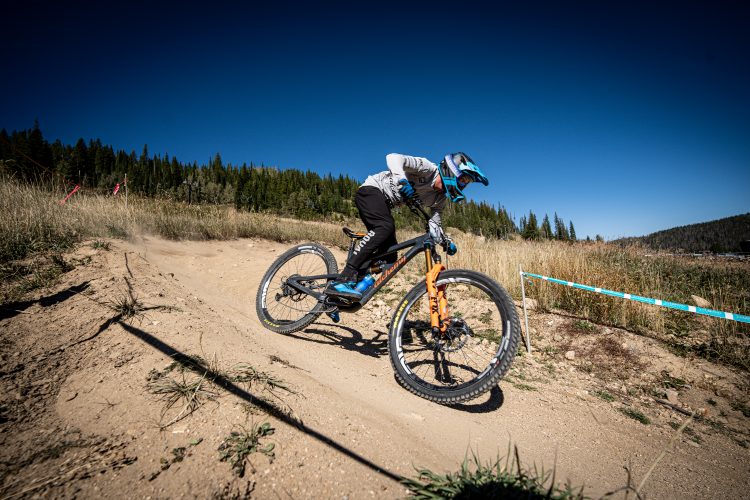
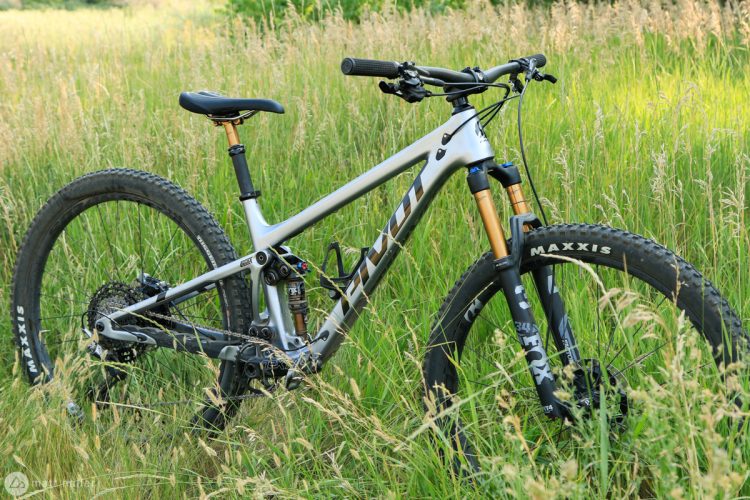


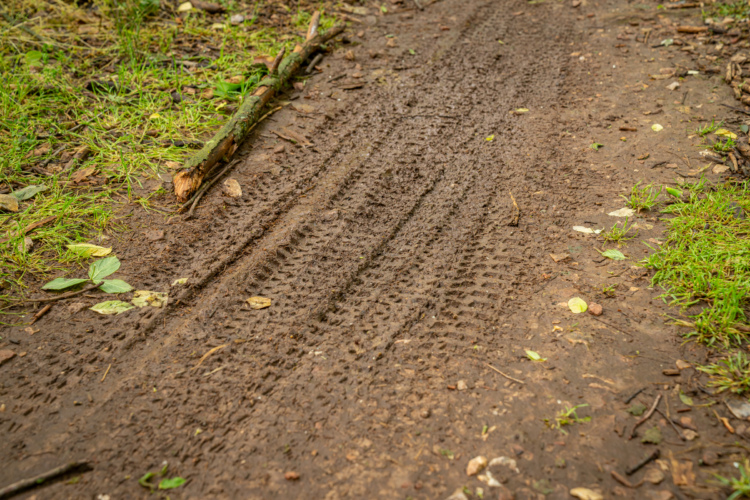

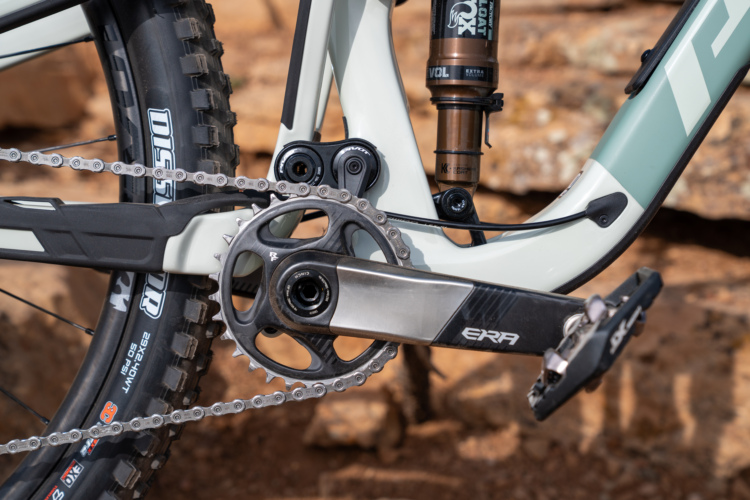
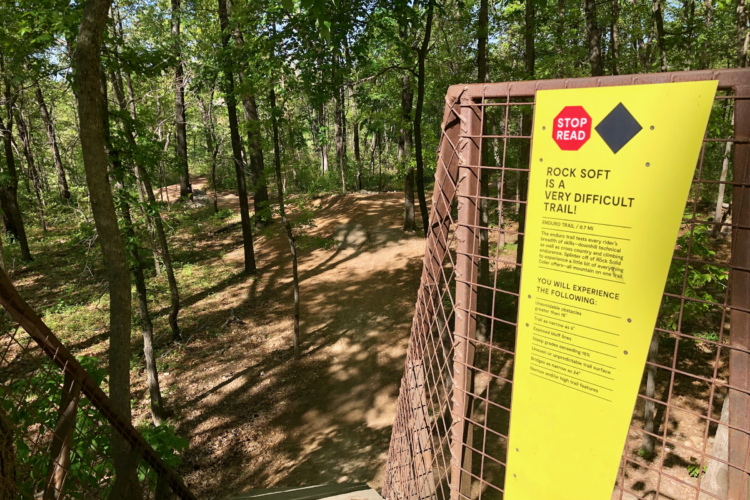

0 Comments